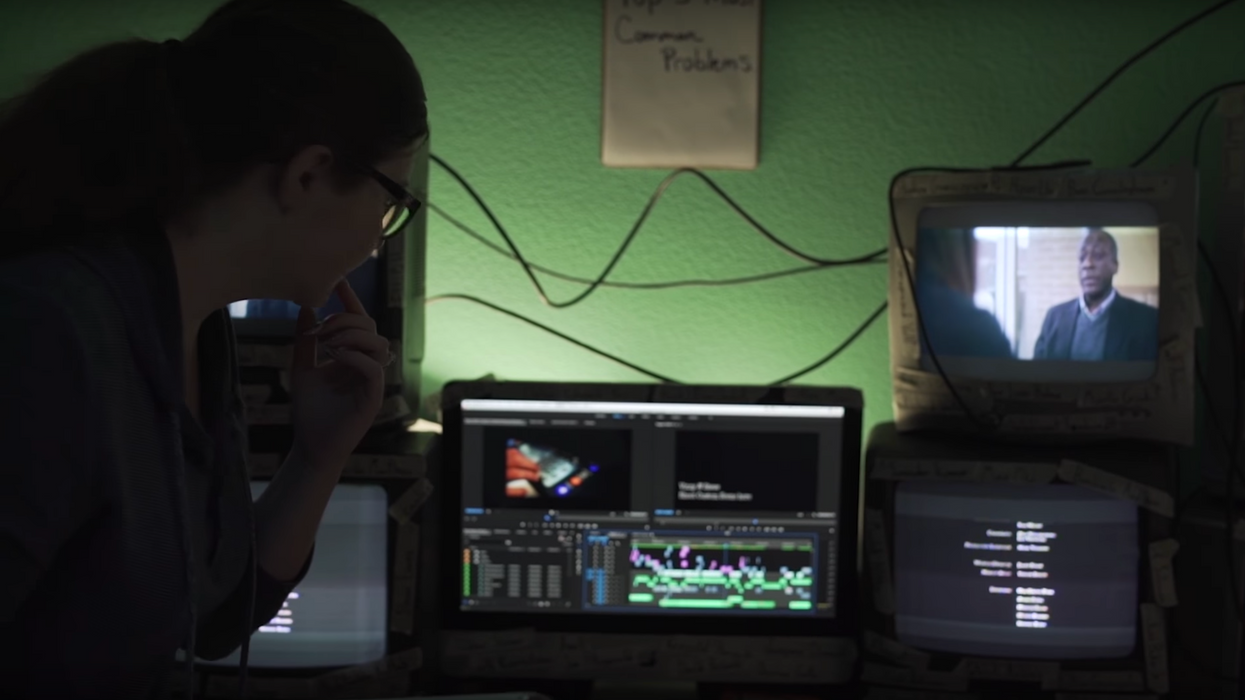Watch: 5 Mistakes You Typically See in Student Films (and How to Fix Them)
Knowing what the problems are is the first step in avoiding them.

If you've ever gone to film school, then you know student films. You've seen really moving, funny, and intelligent movies on premiere days, but you've also seen really trite, emotionless, and downright shallow movies, too. You've seen the good, the bad, and the ugly. That's totally normal. It's next to impossible to make a perfect film right out of the gate, which is why it's helpful to explore and pinpoint the issues that seem to appear in the vast majority of student and first-time films in hopes that you can realize when you're making one yourself.
In this video, Sven Pape of This Guy Edits talks with editor Dr. Karen Pearlman, author of Cutting Rhythms, Intuitive Film Editing and a lecturer in film production at Macquarie University, not only about common mistakes student filmmakers make when directing their first movies but how editors can help correct some of those missteps in post-production. Check it out below:
Dr. Pearlman shares a lot of really great ideas and wisdom about student filmmaking in the video. Tapping into her expertise and experience as an editor and as an educator in cinema, she is able to speak about the problems she has seen in her own students' work and give professional advice on how 1.) new filmmakers can avoid them when making their own movies, and 2.) editors can use their unique skillset to lessen the effect of poor filmmaking.
Here is Dr. Pearlman's list of most common problems in student filmmaking:
Mistaking your own experience for cinema
Taking your experiences and essentially transcribing them over to a film results in some questionable and often unrelatable filmmaking. This doesn't mean you can't pull from your own experiences, it just means that you have to find a way to make them more universal and more relatable to an audience.
Casting and performance problems
Dr. Pearlman says that student and beginner filmmakers should spend a lot more time casting their actors. Many times, new filmmakers will cast whoever they know or whoever says "yes," but it pays to really hold out until you find the right actor for the right role.
Dialogue as exposition
Student films have way too much exposition. They try to explain what's going on internally and externally with words rather than visuals, but, as any experienced filmmaker will tell you, you have to "show," not "tell" your audience what's going on. Expositional scenes are clunky if saturated with dialogue, so try to find ways to use visuals, facial expressions, cinematography, music, costuming, and lighting to get your point across.
Repeated emotional beats
Creating an authentic emotional flow in your film is incredibly hard, especially if you're just starting out. Many times this results in a lot of excess footage that contains the same emotional expression, so if you're an editor and can spot these repeated emotional beats, you can see if some liberal cutting does the trick.
Failing to answer the question, "What is this movie about?"
It's harder than you think to simply tell someone what your movie is about. (Loglines plague almost every writer for a reason.) A lot of new filmmakers and screenwriters will give a longer than necessary explanation of the plot, but according to Dr. Pearlman, it's not the plot that expresses what a movie is about. It's the theme (the main idea). When you figure out what the theme of your movie is, whether it's redemption, transformation, or love, then you'll see your perspective start to form, which will help you make better, more informed decisions as a director. As Pape says, "Theme is what the audience connects to on a deeper level."
What beginner filmmaking mistakes did you learn most from? Let us know down in the comments.
Source: This Guy Edits











